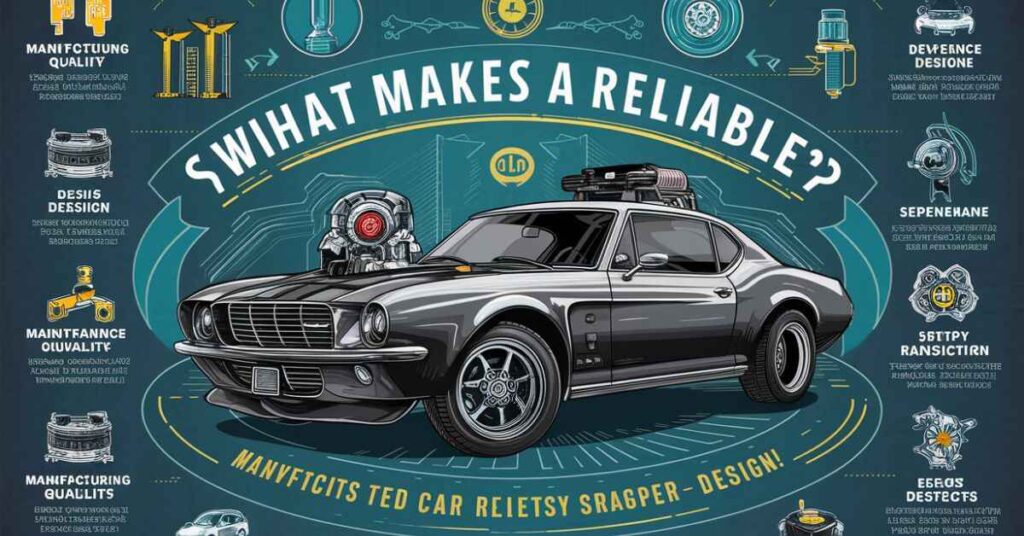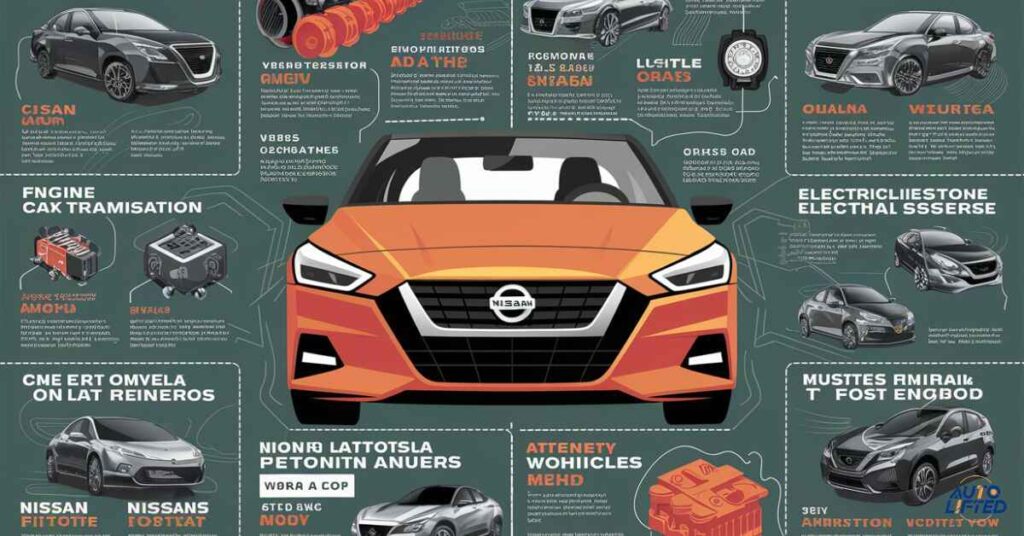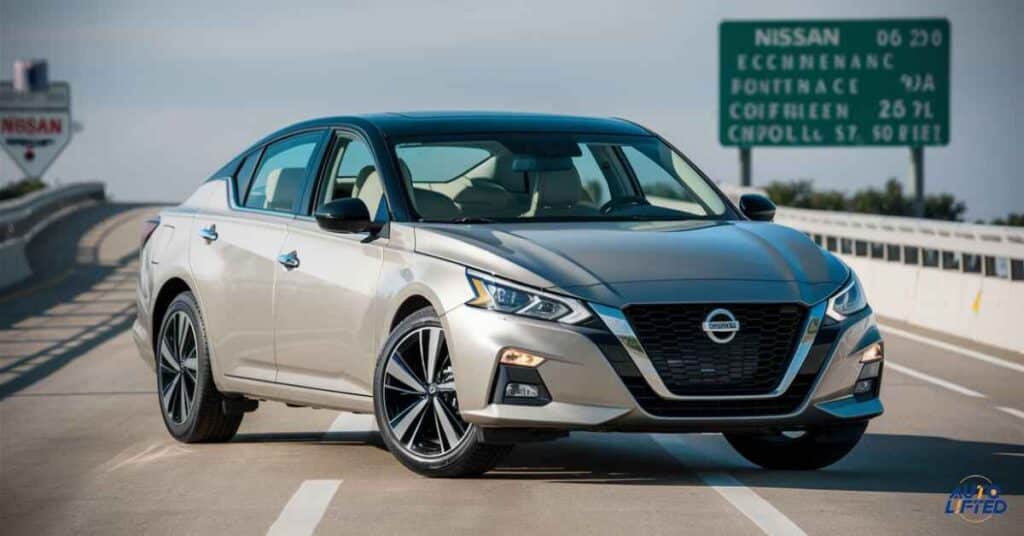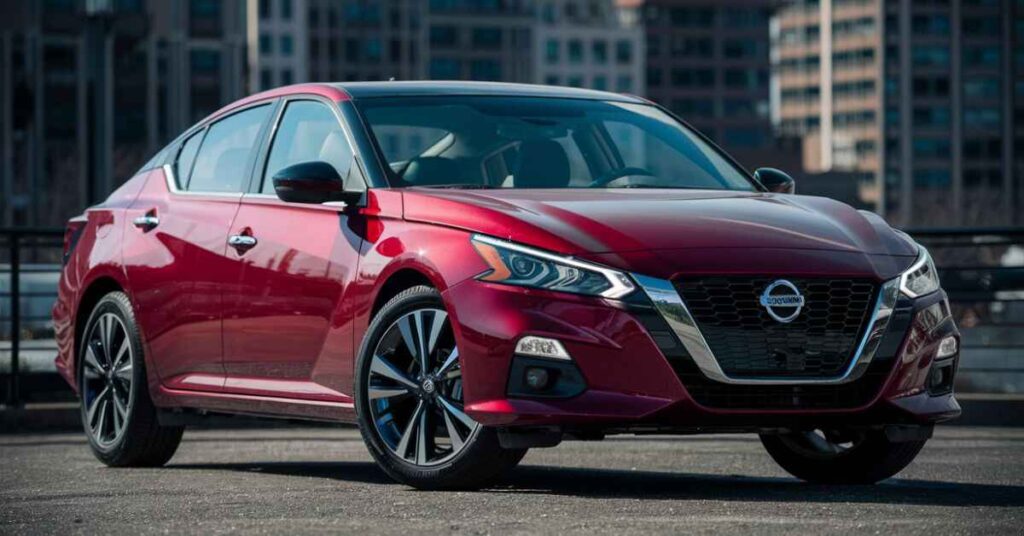Nissan is a popular car brand known worldwide. Many people ask, “Are Nissans good cars?” This question matters because you want value for your money.
Nissan offers a variety of cars, from small sedans to large SUVs. They focus on safety and technology, like Nissan’s Safety Shield 360. Reliability and cost of ownership are also key factors.
Some Nissan models have a history of durability. However, certain issues like CVT problems are common. Let’s explore if Nissans are good cars for you.
What Makes a Car Reliable?

Car reliability refers to a vehicle’s ability to consistently perform without experiencing significant breakdowns or issues. When discussing what makes a car reliable, several key factors come into play.
Read This Blog:
How Much Does It Cost To Straight Pipe A Car
Quality of Engineering and Manufacturing: Reliable cars are typically designed and built with high-quality components and strict quality control processes. The materials used and the precision in manufacturing play a critical role in the car’s longevity.
Proven Track Record: Cars with a long history of dependability are often viewed as reliable. This is why some brands and models are associated with reliability—because they have consistently performed well over time.
Maintenance Requirements: Reliable cars typically require less frequent and less costly maintenance. They have longer service intervals and fewer unexpected repairs, reducing the overall cost of ownership.
Robust Design: Vehicles designed to withstand a variety of conditions without faltering are more reliable. This includes features like durable suspension, reliable brakes, and strong engines and transmissions.
Reputation and Reviews: Customer satisfaction surveys and reliability ratings from independent organizations (like Consumer Reports or J.D. Power) can provide insights into a car’s reliability. These assessments often consider owners’ experiences over time and across various driving conditions.
Warranty Coverage: A comprehensive and lengthy warranty can be indicative of a car’s reliability. Manufacturers confident in their vehicles’ reliability are more likely to offer extended warranties.
Simplified Technology: While advanced technology can be a selling point, overly complex systems may increase the risk of malfunctions. Reliable cars often have technology that enhances functionality without introducing excessive complexity or risk of failure.
Durability: A reliable car should be able to withstand normal wear and tear without significant degradation in performance. This includes everything from the engine and transmission to the interior materials and body panels.
Safety and Crashworthiness: Reliable cars often feature robust safety systems that are proven to work consistently. This includes airbags, anti-lock braking systems (ABS), electronic stability control, and more.
Fuel Efficiency: Although not directly related to reliability fuel efficient cars tend to have engines designed for efficiency and longevity, contributing to overall reliability.
In summary, a car’s reliability depends on its design, engineering, build quality, maintenance needs, durability, and overall performance over time. When choosing a reliable car, it is beneficial to research models with strong reputations, check independent reviews and reliability ratings and consider factors like warranty and maintenance costs.
Are Nissans Reliable Cars?

Nissan is a well known automotive brand with a global reputation for producing a wide range of vehicles from compact cars to SUVs and trucks. Let’s examine some of the critical aspects that contribute to Nissan’s reliability.
Dependability
Nissan cars are generally known for their dependability. Models like the Nissan Altima and Nissan Sentra have established themselves as dependable choices in their segments. According to J.D. Power, Nissan models have achieved respectable ratings for dependability over the years.
Cost of Ownership
A significant aspect of a car’s reliability is its overall cost of ownership, which includes purchase price, insurance, maintenance, and fuel costs. Nissan cars are competitively priced, and many models offer good fuel economy. This, in turn, helps keep the cost of ownership relatively low, adding to their appeal as reliable vehicles.
Average Maintenance Costs
Another key factor in car reliability is maintenance costs. Nissan cars typically have reasonable maintenance costs, with most services being comparable to other brands in their respective segments.
Routine maintenance, such as oil changes and tire rotations, doesn’t usually break the bank. However, some Nissan models may require more expensive repairs, like those with continuously variable transmissions (CVTs), which can impact overall reliability.
Fuel Efficiency
Fuel efficiency is also a sign of a reliable car. Nissan offers several models with excellent fuel economy, such as the Nissan Versa and Nissan LEAF. Vehicles with better fuel efficiency tend to require less frequent refueling, making them more economical to operate. This contributes to their perceived reliability among owners.
Safety Features and Ratings
Safety plays a role in a car’s reliability. Nissan has a strong commitment to safety, offering advanced safety features like Nissan’s Safety Shield 360. This system includes features such as automatic emergency braking blind spot warning and lane departure warning.
Nissan vehicles generally receive good safety ratings from organizations like the National Highway Traffic Safety Administration (NHTSA) and the Insurance Institute for Highway Safety (IIHS), further supporting their reliability.
Performance
Performance is another aspect that influences a car’s reliability. Nissan cars are known for providing a balanced driving experience with a good combination of power and efficiency.
While they might not be the fastest cars on the road, they tend to be steady and consistent in their performance, which contributes to their reliability.
Also Read This Blog:
How Much Does It Cost To Straight Pipe A Car
Common Nissan Issues

Nissan makes many types of cars, from sedans to SUVs and trucks. They are popular for their affordability and safety features. Many Nissan owners find their cars reliable and easy to maintain. However, some models have had common issues that buyers should know.
One common problem with Nissan cars is the CVT (Continuously Variable Transmission). Some owners report slipping, shuddering, or even transmission failure.
Another issue involves engine mounts wearing out too soon, causing vibrations. Additionally, oil consumption and fuel system issues can occur in some Nissan models.
Continuously Variable Transmission (CVT) Issues
Many Nissan models come with CVTs, which have had a history of problems. Some Nissan owners have experienced shuddering, slipping, or even transmission failure. While Nissan has taken steps to address these issues, they remain a point of concern for some buyers.
Excessive Oil Consumption and Engine Mounts That Wear Prematurely
Certain Nissan models have been reported to consume oil excessively, leading to engine problems if not monitored regularly. Additionally some owners have mentioned that engine mounts tend to wear prematurely causing vibrations and noise.
Fuel and Electrical System Issues
There have been reports of fuel pump failures and electrical system issues in some Nissan models. These issues can cause stalling or difficulty starting the engine impacting reliability.
Leaking Coolant Lines
Another common issue is coolant line leakage, which can lead to engine overheating if not addressed promptly. This problem has been reported in certain Nissan SUVs and trucks.
Clear Coat and Paint Issues
Some Nissan owners have noted problems with the clear coat and paint on their vehicles, resulting in premature fading or peeling. While this doesn’t affect performance, it can diminish the car’s appearance and resale value.
Is Nissan as Reliable as Toyota?
Toyota is often regarded as the benchmark for car reliability. When comparing Nissan to Toyota, it’s clear that Toyota generally has a stronger reputation for long term reliability. However, Nissan offers a broader range of vehicles at various price points, providing options for buyers with different budgets.
While Toyota might edge out Nissan in overall reliability. It is essential to consider that Nissan still offers many reliable models with competitive features and pricing. When choosing between the two, buyers should weigh their preferences and needs against the benefits each brand offers.
Do Nissan Cars Last Long?

Do Nissan Cars Last Long?
Nissan cars are designed for longevity, but their lifespan can vary depending on several factors. Let’s explore what influences how long Nissan cars last and which models are known for their durability.
Factors Affecting Longevity
The lifespan of a Nissan car depends on various factors including:
Regular Maintenance: Proper maintenance like oil changes tire rotations and timely repairs is crucial.
Driving Conditions: Harsh weather, rough roads, and heavy traffic can impact a car’s longevity.
Driving Habits: Aggressive driving, frequent short trips, and heavy loads can reduce a car’s lifespan.
Nissan Models Known for Durability
Certain Nissan models are known for their durability and can last over 200,000 miles with proper care. The Nissan Frontier, a midsize truck, has a reputation for being rugged and long-lasting. The Nissan Altima, a midsize sedan, is also recognized for its durability, offering a reliable option for daily commuting.
Tips to Make Nissan Cars Last Longer
To ensure your Nissan car lasts as long as possible follow these tips:
Regular Maintenance: Schedule routine check-ups and follow the manufacturer’s maintenance schedule.
Address Issues Promptly: Fix problems like oil leaks or engine noise before they worsen.
Drive Smoothly: Avoid sudden acceleration heavy braking, and overloading the car.
Use Quality Parts: When replacing components, opt for OEM (Original Equipment Manufacturer) parts for better durability.
By following these guidelines, you can help ensure that your Nissan car remains reliable and lasts for many years. While some models have known issues, consistent care and attention can make a significant difference in a car’s lifespa
What’s Better: A Nissan or a Hyundai?
Both Nissan and Hyundai offer a wide range of vehicles, making it difficult to determine which is better. Hyundai has gained popularity in recent years due to its robust warranties and innovative designs, while Nissan has a longer history in the market.
When comparing the two, it ultimately comes down to personal preference and the specific models you are considering. Hyundai might offer better warranty coverage.
while Nissan provides a more diverse lineup. Consider test driving models from both brands to see which suits your driving style and needs best.
Reliable Nissan Models
While Nissan has had some reliability concerns many of its models are known for their dependability. Here are some of the most reliable Nissan models:
Which Nissan Is Most Reliable?
Nissan Frontier: This midsize truck is known for its ruggedness and durability, making it a popular choice among truck enthusiasts.
Nissan Altima: A reliable midsize sedan with a reputation for comfort and efficiency.
Nissan Rogue: A compact SUV that combines versatility and reliability, making it a top choice among families.
Nissan Sentra: A compact sedan that’s both affordable and reliable, ideal for city driving and commuting.
Nissan LEAF: An electric vehicle with a solid track record of reliability and low operating costs.
So, Are Nissans Reliable?
Based on the information provided, it is clear that Nissan cars can be reliable, especially when properly maintained. While there are some common issues many Nissan models offer a balance of dependability affordability and performance. The key is to choose the right model and ensure regular maintenance to get the most out of your Nissan vehicle.
Frequently Asked Question
Are Nissans reliable cars?
Nissan cars are generally reliable, but some models have common issues, like CVT problems. Proper maintenance is key to ensuring their longevity.
Is Nissan better than Toyota?
Toyota generally has a stronger reputation for reliability, but Nissan offers a broader range of models. Your choice depends on your specific needs and budget.
Do Nissan cars last long?
With regular maintenance, Nissan cars can last over 200,000 miles. Some models, like the Nissan Frontier and Altima, are known for their durability.
What is the most reliable car brand?
Toyota is often considered the most reliable car brand. It consistently ranks high in reliability studies and has a strong reputation.
Is Honda or Nissan better?
Honda has a stronger track record for reliability and fuel efficiency. Nissan offers a more diverse lineup so your preference depends on what you are looking for.
Why is Nissan so popular?
Nissan is popular for its wide range of models innovative technology and competitive pricing. It appeals to a variety of buyers seeking affordability and versatility.
Final Thoughts
Nissan cars are generally reliable, offering a wide range of vehicles to suit various needs and budgets. While some issues have been reported the brand has taken steps to address them and continues to improve its models.
If you are considering purchasing a Nissan, be sure to do your research, check for common issues, and consider your driving preferences. Ultimately, a Nissan can be a reliable and rewarding choice for many car owners.







